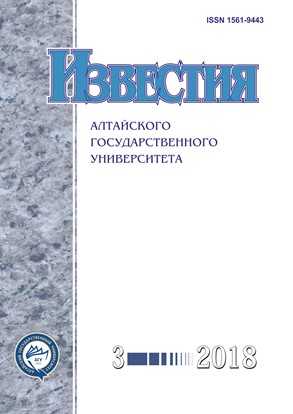Criminal Law Protection of the Human Fetus: de jure and de facto
Abstract
This article examines the problem of determining the moment of the beginning of human life and the inclusion of a mechanism for its protection by measures of criminal law. The article analyzes the norms of the legislation on health care, which determine the moment of the beginning of a person's life. Consideration is given to the problem questions of qualification of artificial termination of pregnancy. Like everything in this world, life has its beginning and its end. Specialists of many scientific views and especially specialists of the criminal law sphere give a lot of creative effort and time to the scientific debate about the beginning of human life and about the establishment of the fact, indicating the occurrence of his death. This is due to the fact that the current Criminal Code of the Russian Federation (hereinafter - the criminal code) contains criminal liability for crimes that infringe on the life of another person. Support is given to the position that the expulsion of the fetus from the womb of the mother is the murder of the fetus. Therefore, the criminal law de facto and de jure must protect the life of the fetus from the moment of its conception until its death. It is stated that there is no agreement between de facto and de jure.
DOI 10.14258/izvasu(2018)3-13
Downloads
Metrics
References
Бояров С. Проблемы определения начала жизни человека в уголовном праве // Уголовное право. — 2004. — № 4.
Головистикова А.Н. Конституционно-правовая охрана жизни человека в Российской Федерации : дис. . канд. юрид. наук. — М., 2004.
Козаченко И.Я. Энциклопедический словарь уголовно-правовых моделей (Криминальное соло буквы «А»). — Екатеринбург, 2014.
Комментарий к Уголовному кодексу Российской Федерации / отв. ред. В.И. Радченко; науч. ред. А.С. Мих-лин. 2-е изд., перераб. и доп. — М., 2004.
Минаева М.М. Уголовно-правовая охрана жизни ребенка до и после рождения по законодательству России : автореф. дис. . канд. юрид. наук. — М., 2012.
Барч И. 10 тайн неродившегося ребенка // Скандалы. — 1993. — № 24.
Венгеров. Наказуемость искусственного аборта по УК // Пролетарский Суд. — 1923. — № 2.
Тасаков С., Шумилов А. Искусственное прерывание беременности (аборт). Уголовно-правовые аспекты // Уголовное право. — 2004. — № 2.
Волкова Т. Правовая защита права на жизнь новорожденного // Законность. — 2004. — № 4.
Беседкина Н.В. Защита прав неродившегося ребенка (конституционный и семейно-правовой аспект). — М., — 2007.
Copyright (c) 2018 И.Я. Козаченко

This work is licensed under a Creative Commons Attribution 4.0 International License.
Izvestiya of Altai State University is a golden publisher, as we allow self-archiving, but most importantly we are fully transparent about your rights.
Authors may present and discuss their findings ahead of publication: at biological or scientific conferences, on preprint servers, in public databases, and in blogs, wikis, tweets, and other informal communication channels.
Izvestiya of Altai State University allows authors to deposit manuscripts (currently under review or those for intended submission to Izvestiya of Altai State University) in non-commercial, pre-print servers such as ArXiv.
Authors who publish with this journal agree to the following terms:
- Authors retain copyright and grant the journal right of first publication with the work simultaneously licensed under a Creative Commons Attribution License (CC BY 4.0) that allows others to share the work with an acknowledgement of the work's authorship and initial publication in this journal.
- Authors are able to enter into separate, additional contractual arrangements for the non-exclusive distribution of the journal's published version of the work (e.g., post it to an institutional repository or publish it in a book), with an acknowledgement of its initial publication in this journal.
- Authors are permitted and encouraged to post their work online (e.g., in institutional repositories or on their website) prior to and during the submission process, as it can lead to productive exchanges, as well as earlier and greater citation of published work (See The Effect of Open Access).








